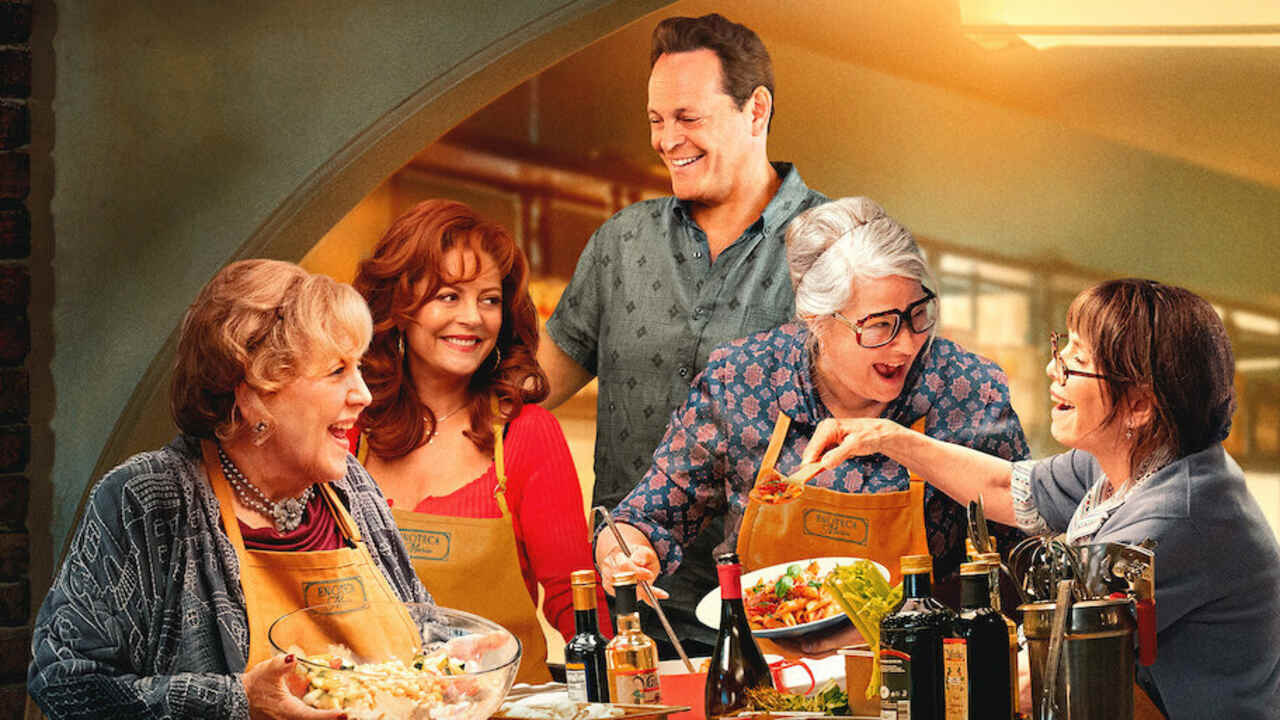
Some films try to dazzle you with twists, others with spectacle. “Nonnas,” now streaming on Netflix, does neither. Instead, it opts to wrap you in the softest of comforts: good food, old stories, and a kitchen full of sass and simmering saucepans. Directed by Stephen Chbosky, this lighthearted comedy-drama finds its charm not in innovation but in the familiarity of home—and the wisdom of women who have seen a lot of life and aren't afraid to tell you when you're overcooking the pasta.
Vince Vaughn plays Joe Scaravella, a middle-aged Staten Island native whose world is upended by the death of his beloved mother. Grieving and adrift, Joe stumbles upon an idea that sounds more like a fever dream than a business plan: open a restaurant where each night, a different Italian grandmother—known lovingly as “nonna”—takes over the kitchen and cooks a meal straight from her family’s tradition. Naturally, chaos follows. But so does the healing.
The story, inspired by the real-life restaurant Enoteca Maria, might seem niche, but its themes are anything but. It’s about the warmth of community, the lessons passed down through generations, and the realization that sometimes, what you’re searching for has been simmering on the back burner all along. The heart of the movie lies in the cast of nonnas, played by screen legends like Lorraine Bracco, Talia Shire, Brenda Vaccaro, and Susan Sarandon. Each of them embodies a different personality—opinionated, nurturing, no-nonsense, sentimental—and all of them have something to teach Joe, and the audience.
The film moves along at an easy pace. There are montages of meatballs being rolled and sauce stirred, of laughter erupting at long tables, of arguments over whether oregano belongs in a particular dish. But it’s not just about cooking. Through the stories the nonnas share, we learn about migration, loss, love, and stubborn resilience. These women are not caricatures of “Italian grandma” tropes; they’re fully fleshed-out characters with sharp edges, soft hearts, and decades of lived experience.
Vince Vaughn dials back his usual fast-talking energy, playing Joe with a kind of emotional hesitance that works. He’s not the most compelling lead character, but that’s okay—he’s meant to be a vessel for the nonnas’ world to bloom around him. His moments of growth are subtle: learning to listen, to let go, and to value connection over control. Joe Manganiello adds a nice counterbalance as Joe’s longtime friend Bruno, offering dry humor and genuine loyalty.
What keeps the film alive is its tone. It doesn’t try to be overly sentimental. There's no sweeping orchestral manipulation or grand moralizing. It’s warm, yes, but it’s also cheeky and grounded. You get the sense that if the nonnas thought a scene was getting too sappy, they’d swat the script and tell the writers to get over themselves. This self-awareness keeps things breezy and fun even when the emotional undercurrents tug a little harder.
The visuals are another pleasant surprise. The restaurant is filled with cozy lighting and a loving attention to detail—lace curtains, hand-painted plates, and family photos. Food, of course, is shot with affection. The camera lingers on golden cutlets, rich tomato sauces, and generous helpings of pasta. If you’re not hungry by the end of the film, you might need to check if you’re human.
That said, not everything on the menu lands perfectly. The plot is about as predictable as Sunday dinner. You can see every major story beat coming from a mile away. The romance subplot between Joe and a neighborhood woman feels tacked on and barely registers emotionally. Some of the dialogue leans too much into cliché, and a few of the nonnas are given more screen time than others, leaving some wonderful characters underused. It also occasionally plays Italian-American culture a little too safe, dipping into stereotypes instead of nuance.
Still, “Nonnas” doesn’t pretend to be anything it’s not. It knows its strengths—character, food, warmth—and sticks to them. The film’s best scenes are the simplest ones: a nonna recounting the story behind her signature dish, a kitchen argument turning into a group hug, and an awkward but sincere family meal that ends in laughter.
It’s rare to see older women at the center of a story that isn’t about aging or illness. Here, they’re celebrated for who they are and what they’ve lived through. That in itself feels refreshing. The film might not reinvent anything, but it reminds us of something easy to forget in the age of fast food and faster lives: that time, love, and a really good ragù can heal more than we think.
“Nonnas” is far from perfect, but it’s comforting in a way that few movies are. It’s the kind of film you put on when you want to feel less alone when you miss home. When you want to laugh a little, tear up a little, and end up ordering lasagna. Maybe even calling your grandmother.
Final Score- [7/10]
Reviewed by - Anjali Sharma
Follow @AnjaliS54769166 on Twitter
Publisher at Midgard Times
Hi Everyone, after a due consideration, we have decided that we will be open for donations to help us in managing our website. We will be greatful for any kind of amount we receive. Thanks!
— Midgard Times 🎬 (@Moviesr_net) January 4, 2026
PayPal- [email protected] pic.twitter.com/DlNNz5Npm5
Get all latest content delivered to your email a few times a month.
Bringing Pop Culture News from Every Realm, Get All the Latest Movie, TV News, Reviews & Trailers
Got Any questions? Drop an email to [email protected]